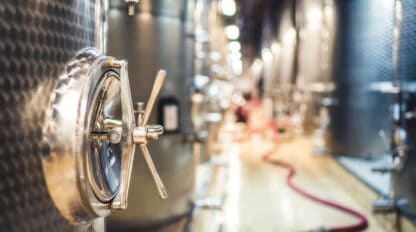Precision Fermentation: The Natural Evolution of Our Food System

Our food system is constantly evolving, thanks to new technologies, techniques, and scientific discoveries.
The food system can’t help but evolve
From ancient farming to today’s high-tech agricultural practices, we’ve constantly sought ways to make food production more efficient, productive, and sustainable. For early civilizations, innovations like the plow and irrigation systems changed farming forever, transforming the way we made food more efficiently to support growing populations. The Agricultural Revolution in the 18th and 19th centuries marked a major turning point, with innovations like the seed drill that made planting seeds more precise and improved crop yields. Farmers also started using crop rotation systems and selective breeding techniques to boost productivity. The introduction of fertilizers and pesticides set the stage for modern farming practices.
The 20th century brought about massive changes in global food production. High-yielding crop varieties, synthetic fertilizers, and advanced irrigation methods, championed by scientists like Norman Borlaug, led to significant increases in food production, especially in developing countries. However, these advancements also highlighted the environmental downsides of intensive farming, such as soil degradation and pollution.
Meanwhile, food science and processing technologies were a significant part of the strides made in food safety and quality. Food preservation was revolutionized by pasteurization, canning, and refrigeration, allowing for the long-term storage and global distribution of perishable foods. This extended the shelf life of many products and created complex supply chains connecting producers and consumers worldwide.
“…Precision fermentation ingredients can mimic animal-based counterparts because they are functionally identical to them.”
Precision fermentation’s rich history
Precision fermentation represents another leap in food science to improve how we produce food. Dating as far back as the 1920’s, precision fermentation first appears in food science when it was initially used for fruit juice extraction to reproduce citric acid—a common food preservative—whose production is traditionally extremely resource-intensive and inefficient (It takes 500 lemons to make just two pounds of citric acid1). Sixty years later, in 1982, precision fermentation revolutionized the health of millions by replicating insulin, which is now how more than 99% of insulin is made worldwide. If you know someone who requires insulin to manage their diabetes, you very likely know someone who directly benefits from precision fermentation2,3
Today, precision fermentation represents the potential to aid in food security, climate action, all while bringing the same functionality and experience that their traditionally produced ingredient counterparts offer. Ingredients made from precision fermentation can in certain cases reduce the need for additional emulsifiers, thickeners, and other texture enhancers, because of the high level of functionality that highly purified precision fermentation ingredients can bring.
A new era for our food system
In order to meet the demands of our planet’s population, while also addressing food security, and the climate crisis, the food system must evolve, as it always has.
From the beginning, the evolution of our food system has showcased human ingenuity and adaptability. From the earliest days of agriculture to the high-tech practices of today, continuous innovation has transformed how we produce, process, and distribute food. As we move forward, integrating cutting-edge technologies and sustainable practices will be key to meeting the world’s food demands while tackling environmental and ethical challenges. Precision fermentation is simply one part of a greater suite of solutions that has been around for decades, and has already helped improve our lives. The potential is only growing.
1 https://www.rethinkx.com/blog/citric-acid
2 https://www.rethinkx.com/blog/the-disruption-of-insulin
3 Valentin Waschulin, M.Sc, Liz Specht, Ph.D. 2018. “Cellular agriculture: An extension of common production methods for food.” Good Food Institute.


